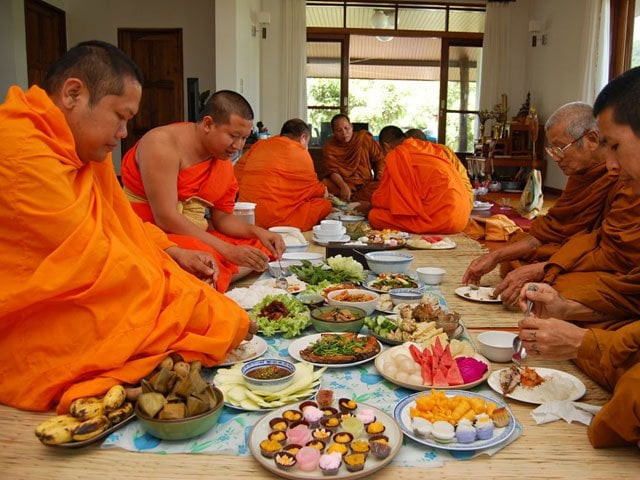6 religions other than Islam that require fasting
Religions have more similarities than differences

PHOTO: CHIANGRAITIMES.COM
Here are six religions -- other than Islam -- that require their followers to fast.
How many hours will you be fasting this year?
1. Jews
Yom Kippur, the Day of Atonement, is the best known fast day. The Jewish calendar has six other fast days as well, including Tish B'Av -- the day on which the destruction of the Jewish temple took place.
 PHOTO: LELAND BOBBE/CORBIS
PHOTO: LELAND BOBBE/CORBIS2. Buddhists
All the main sects of Buddhists practice some periods of fasting, usually on full-moon days and other holidays.
 Monks Chanting at Wat Pah Nanachat. PHOTO: BUDDHISTTEACHINGS.ORG
Monks Chanting at Wat Pah Nanachat. PHOTO: BUDDHISTTEACHINGS.ORG3. Catholics
Catholics fast on Ash Wednesday and Good Friday. They also abstain from meat on all Fridays in Lent.
 Parishioner Jennifer has ash smudged on her forehead by a Reverand on Ash Wednesday. PHOTO: BANGORDAILYNNEWS/JOHN CLARKE RUSS
Parishioner Jennifer has ash smudged on her forehead by a Reverand on Ash Wednesday. PHOTO: BANGORDAILYNNEWS/JOHN CLARKE RUSS4. Hindus
Fasting is commonly practiced on new moon days and during festivals such as Shivarati, Saraswati and Puja.
 PHOTO: TELUGONE.COM
PHOTO: TELUGONE.COM5. Mormons
Members of the Latter Day Saint movement, Mormons fast on the first Sunday of each month.
 PHOTO: LDSSMILE.COM
PHOTO: LDSSMILE.COMMoon sighting: 50 muftis issue edict against Popalzai
6. Baha'is
The Baha'i fast takes place during Ala -- the 19th month of the Baha'i year, from March 2 to 20.
 The Shrine of Baha’u’llah in Bahji, is the most holy site in the world for Baha’is. Photo: Wikimedia Commons
The Shrine of Baha’u’llah in Bahji, is the most holy site in the world for Baha’is. Photo: Wikimedia CommonsHave something to add to this story? Share it in the comments.



















COMMENTS
Comments are moderated and generally will be posted if they are on-topic and not abusive.
For more information, please see our Comments FAQ